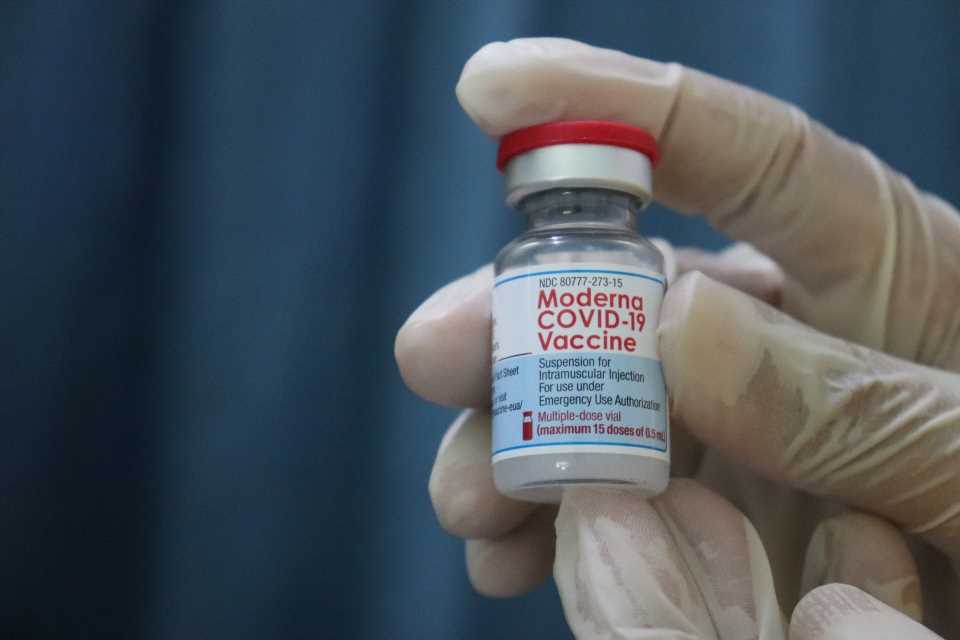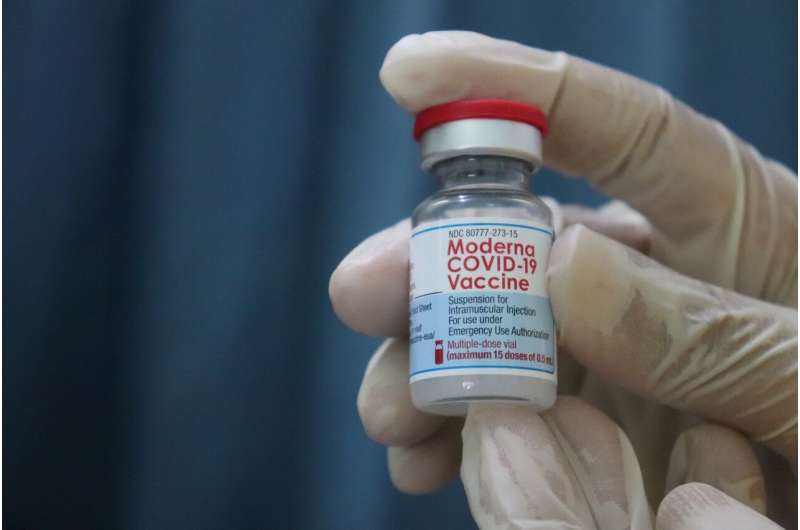

Moderna has developed a new and improved version of its COVID-19 vaccine. The unique formulation (mRNA-1283) reduces the vaccine’s content from the full-length SARS-CoV-2 spike protein to a narrowly focused encoding of just two segments—the N-terminal domain (NTD) and the receptor binding domain (RBD).
In a paper, “Domain-based mRNA vaccines encoding spike protein N-terminal and receptor binding domains confer protection against SARS-CoV-2,” published in Science Translational Medicine, Moderna Inc. researchers share findings of the new vaccine.
Some of the highlights of the new formula include:
- Improved antigen expression: mRNA-1283 demonstrated improved antigen expression compared to the clinically available mRNA-1273, which encodes the full-length spike protein. This suggests that mRNA-1283 can produce higher levels of the target antigens.
- Enhanced antibody responses: When administered as a primary series, booster, or variant-specific booster, mRNA-1283 elicited similar or greater immune responses than the original mRNA-1273.
- Greater stability: mRNA-1283 showed greater stability at refrigerated temperatures (2° to 8°C). Specifically, mRNA-1283 reached 62% of its initial integrity at 12 months when stored at 2° to 8°C, while the original version reached 63% integrity after only six months under the same conditions, effectively doubling the shelf life.
- Dose-sparing: mRNA-1283 demonstrated the ability to elicit effective immunogenic responses even at lower doses, suggesting the possibility of dose-sparing, which could reduce potential reactogenicity.
- Protection against variants: mRNA-1283, including variant-specific versions, produced more significant neutralizing antibody (nAb) responses against variants such as B.1.351 and B.1.617.2 compared to mRNA-1273, indicating its effectiveness against emerging variants.
Protection in animal models
In animal studies, mice vaccinated with mRNA-1283 were protected from both the D614G mutation and BA.1 variants of SARS-CoV-2, further suggesting that mRNA-1283 can confer protection against different strains of the virus.
Overall, mRNA-1283 offers several advantages, including improved antigen expression, strong immune responses, stability, and dose-sparing, making it a promising candidate for further clinical evaluation as a COVID-19 vaccine.
Early research on the SARS-CoV-2 virus identified the spike protein as a critical component of viral entry into host cells. This knowledge laid the foundation for the original vaccine development by Moderna, which encoded the entire length of the spike protein in the original vaccine formulation.
Researchers have since recognized that not all parts of the spike protein are equally crucial for immune responses. Certain regions, particularly the receptor binding domain (RBD) and the N-terminal domain (NTD), were identified as critical sites for neutralization by antibodies.
Extensive research into the structure and function of the SARS-CoV-2 virus, including its spike protein, provided valuable insights into potential vaccine targets. Scientists used this research to design vaccines specifically focused on the RBD, NTD, or a combination of these domains.
A combination of a deep understanding of the virus, advances in vaccine technology, and rigorous scientific research contributed to the discovery that domain-based vaccines like mRNA-1283 can focus on just the critical antigenic domains of the spike protein.
An effective streamlined and targeted vaccine should also allow for a shorter response time to emerging strains as reformulation efforts only need to focus on the changes of two sites on the virus spike protein.
More information:
Guillaume B. E. Stewart-Jones et al, Domain-based mRNA vaccines encoding spike protein N-terminal and receptor binding domains confer protection against SARS-CoV-2, Science Translational Medicine (2023). DOI: 10.1126/scitranslmed.adf4100
Journal information:
Science Translational Medicine
Source: Read Full Article